Short Joy
Short Joy is a competition section for the most remarkable world documentary shorts.
All films are made available online and free for two weeks prior to the festival. The public, anywhere in the world, is the jury of the section. You can watch and vote here.
→ Free distribution on DAFilms.com platform for one year & additional support for the winning film.
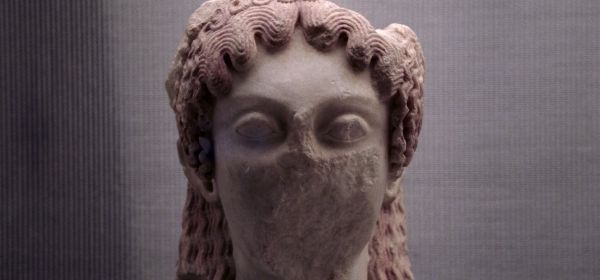
3723 km As the Crow Flies
director: Oksana Kobeleva Luyssen, Ysé Auguste-Dormeuil
original title: 3723 km à vol d'oiseau
country: Belgium
year: 2024
running time: 15 min.
Obtaining official documents represents a coveted symbol of freedom and security for migrants. But how do you navigate the administrative labyrinth, where even a poorly cropped photo can mean your application is rejected? Set in Athens, the film explores the relationship between identity, race, and European bureaucracy. “I reason like you. I think like you.”
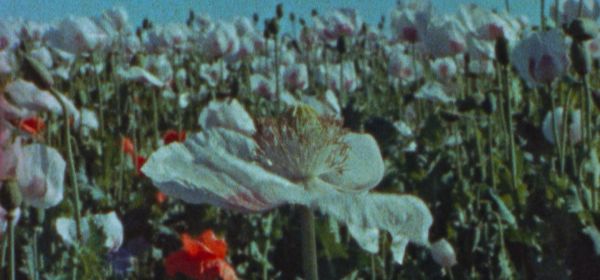
Apocalypse Yesterday, Today, Tomorrow, and the Day After Tomorrow
director: Anastasiia Bonadyha
original title: Apokalypsa včera, dnes, zítra a pozítří
country: Ukraine, Czech Republic
year: 2025
running time: 20 min.
The Ukrainian town of Nikopol has been a prime target for Russian weapons for several reasons. A giant dam used to stand nearby. The Zaporizhzhia Nuclear Power Plant is located just a short distance away. With the destruction of the reservoir, people lost their source of drinking water. And the power plant lost its cooling system. Yet, many people, like Father Bohdan, remain in this God-forsaken place …A report from a place that has been struck by blows of biblical proportions, yet one where people continue to live.“Through Bohdan's story, the film seeks answers to the question of why people remain in their homes even though every day could be their last.“ — TPS Remízek
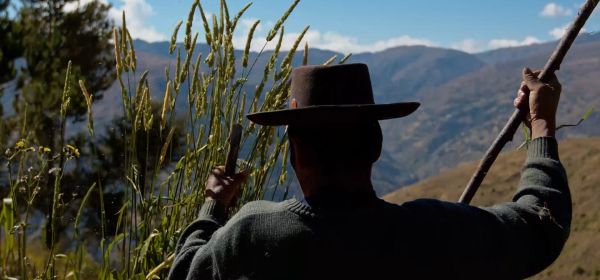
AXOMAMA
director: Tracy Valcárcel
original title: AXOMAMA
country: Canada, Peru
year: 2025
running time: 26 min.
The name Axomama refers to the Inca goddess of potatoes. In the mountainous regions of Peru, her place of origin, this food permeates various spheres of the lives of the local people. This anthropologically conceived documentary attempts to capture the inseparable connection between potatoes and Peru’s famous colonial history, culture, and traditional beliefs. “Central to her research are the questions; how can we better understand ownership and agency in space through the experience of the body? … How do we form identities in relation to places where we don’t have histories?” — Tracy Valcárcel’s website Source: Tracy Valcárcel’s website
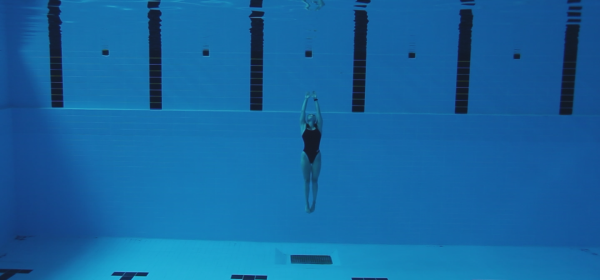
Behind the Blue
director: Viktorie Aldabagh
original title: Hlubina
country: Czech Republic
year: 2025
running time: 21 min.
Czech freediver, national record holder, and daughter of a synchronized swimmer and diver, Jindřiška Zajacová, attempts to tune into the water and let herself be drawn to the centre of the Earth, and perhaps even to the centre of herself. This contemplative portrait of the appeal of the soothing blue absolute touches on the physical limits of the human body, and seeks a way to float through the terrestrial world above the surface. “With every exhale you merge more and more with the water until you no longer recognize the boundaries. You’re everywhere and nowhere.”
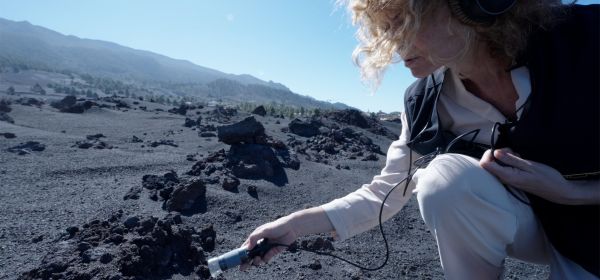
Do Rocks Dream of Flying?
director: Mathieu Ciulla, Simon Zorraquin
original title: Do Rocks Dream of Flying?
country: Spain, France, Argentina
year: 2025
running time: 8 min.
Do the physical properties of rocks change in the presence of humans? Filmmakers follow the work of a scientist who listens to changes in sound frequencies in a vast wasteland after a volcanic eruption. Her geoacoustic research prompts reflections on the possibility of consciousness in inanimate objects, and their mutual communication. “The summit of Mount Everest is marine limestone: only a prejudice could make us think the earth beneath our feet is not alive.” — Conrad Anker, mountaineer
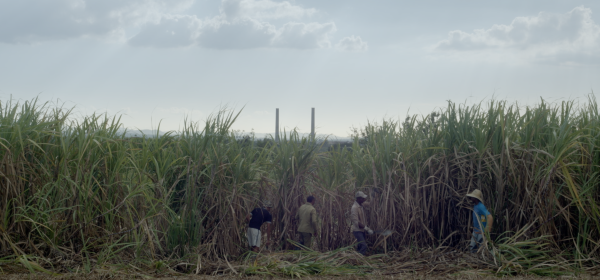
Far Away
director: Feguenson Hermogène
original title: Nan Ginen
country: Cuba, Haiti
year: 2025
running time: 21 min.
A postcolonial voodoo ritual, cyclical in the hypnotic rhythm of time and pulsating fists, saturated with fire and water, interwoven with the East and West, is intended to win the favour of the Haitian goddess, Erzulie. It is also a prayer for the deceased ancestors who, along with other Haitian workers, were murdered in 1920 in the Cuban province of Holguín, in a sugar mill owned by a subsidiary of the American corporation, United Fruit Company.“You fought hard for your children. Now we are alone in this country.”
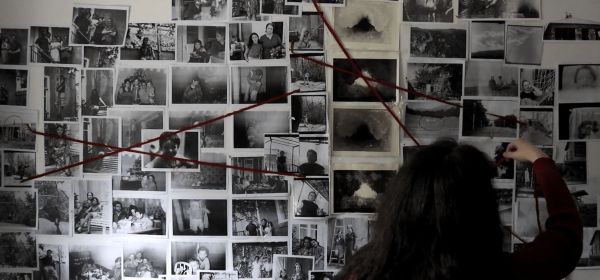
Father, Developed
director: Elene Burtchuladze
original title: მამა, გამჟღავნებული
country: Georgia
year: 2024
running time: 21 min.
Young men in Georgia in the 1990s died en masse of heart attacks as a result of the war. They left behind a generation without fathers, including Elene. This autobiographical portrait looks into a darkroom where the author develops photographs and films left behind by her father, lending them her own narrative, and thereby finding herself. “Between the earth and the land of the dead, a darkroom becomes the only dimension where the paths of a father and a daughter can cross.”
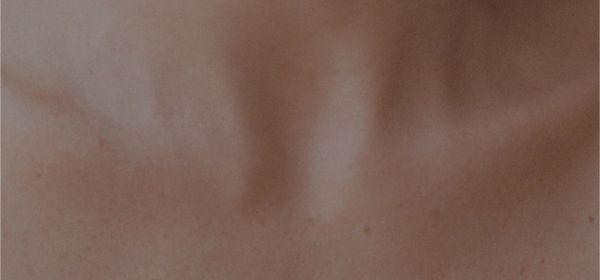
Geometry of Return
director: Nataliya Bek-Gergard
original title: Геометрія Повернення
country: Canada, Ukraine
year: 2025
running time: 8 min.
The Russian occupiers came and took almost everything from Svitlana, but they could not rob her of her memories of places and moments from her previous life. This tragic portrait of war losses thereby becomes a meditation on values that are enduring, precisely because no brute force can tear them from individual consciousness, violate them, or bury them. “Focused on the details often overlooked, her films explore the quieter sides of life, giving space to what often remains unsaid.” Source: FilmFreeway.
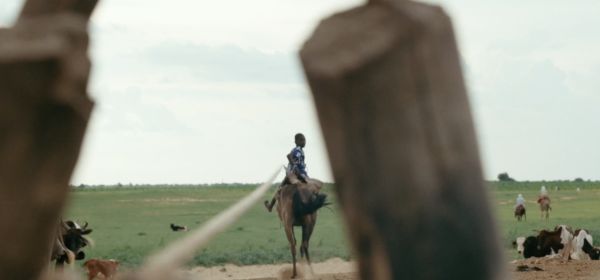
Guardian of the Well
director: Bentley Brown, Tahir Ben Mahamat Zene
original title: Biir Gardi
country: Chad
year: 2025
running time: 5 min.
In mid-2024, Chad experienced its worst drought in decades, most of the livestock died, people moved elsewhere, and the city disappeared. A chance encounter at a water well in the desolate Batha Prefecture opens a window into the situation of a Central African country affected by climate change. “The droughts and floods in Chad aren’t isolated – they reflect broader climate change driven largely by industrialized nations.” — Bentley Brown
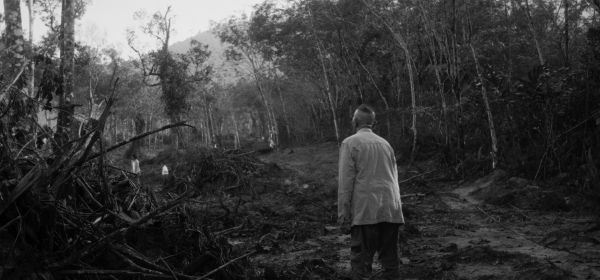
Latex Labyrinth
director: Wey Yinn Teo
original title: Latex Labyrinth
country: Malaysia, Singapore
year: 2025
running time: 12 min.
When British colonizers first planted rubber trees in Malaysia, they paved the way for the future of the local economy, and the economic and cultural subjugation of the population. Accompanied by folk songs, an old man awakens in this poetic documentary, and begins to dance despite the deforested horizons of the present. “I’m interested in the juxtaposition of textures in music and tempo in film, while translating the synthesis of sound, music, text and narrative into a symphonic sky of stars on a cloudless dark night – an encompassing space that is sincere, complex and has power to heal.” — Wey Yinn Teo
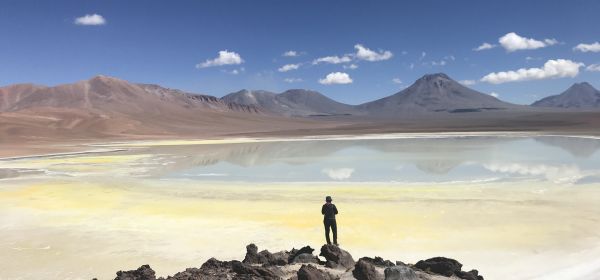
Life Invisible
director: Bettina Perut, Iván Osnovikoff
original title: Life Invisible
country: United Kingdom, Chile, Sweden
year: 2025
running time: 20 min.
The breathtaking panoramas of the Chilean deserts are the setting for a hidden battle for the survival of humanity. The local salt flats offer two highly sought-after commodities: lithium, used in the manufacture of batteries, and bacteria, essential in the fight against growing antibiotic resistance. It is these that the film’s protagonist is trying to discover. “The planet is currently experiencing a global antibiotic resistance crisis. This is contributing to the deaths of five million people a year.”
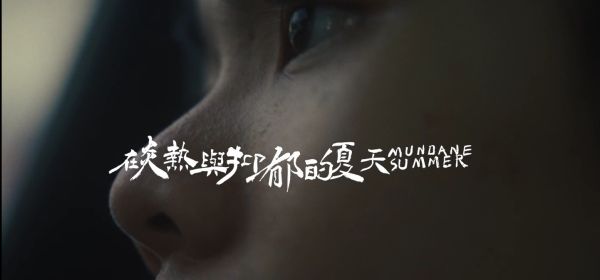
Mundane Summer
director: Yupeng He
original title: 在炎热与抑郁的夏天
country: United States, China
year: 2025
running time: 13 min.
A sixteen-year-old boy begins his studies at secondary school during the summer. However, as he is in China, everything is preceded by compulsory military training. Between drills and shouting ideological slogans, in this darkly lyrical documentary, summer gradually fades away, along with the young man’s conviction about the meaning of his current actions. “During the past summer I was thinking about departure and farewell, and my feelings of solitude.” — Yupeng He
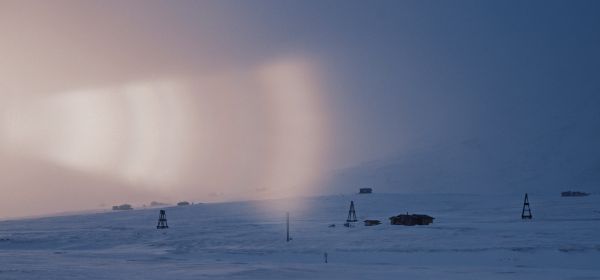
On Air
director: Astrid Ardagh
original title: Ishavsringen
country: Norway, Netherlands
year: 2024
running time: 20 min.
In 2022, a Russian cyberattack cut off the Norwegian islands of Bjørnøya and Hopen from the world for two weeks. A group of Norwegian radio amateurs brought the voices of civilization back to the hypnotic icy wasteland. This compelling essay looks through the inquiring eyes of extraterrestrial anthropologists, who suggest that Morse code and radio signals may one day save our fragile digital world. “It may seem like the ham radio operators cleave to the past, but in today’s world, with threats of war, extreme weather, and solar storms, it could be that they are actually ensuring our future survival.” — Nordnorsk kunstnersenter
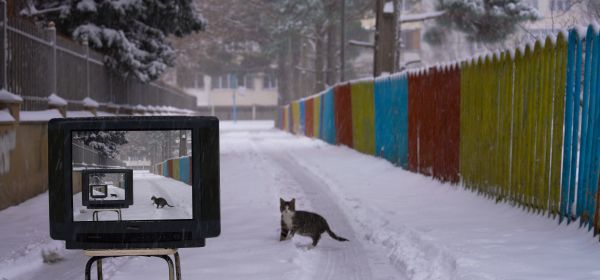
Palaces of Memory
director: Matlab Mukhtarov
original title: Yaddaş sarayları
country: Azerbaijan
year: 2024
running time: 23 min.
Against the backdrop of his hometown and momentous historical events, the director seeks the answer to a seemingly simple question: What is my very first memory? As the film progresses, the audiovisual topography of memory transforms into a labyrinth where trauma and disappointment may lurk around every corner, and yet we continue to navigate through it. “The director, who wants to return to the most interesting period of his childhood, wanders the streets of the city where he was born and raised, to find traces of those years. This trip brings him to the place of his first memory.”
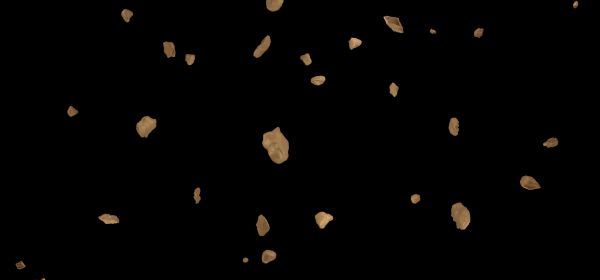
Red Dust
director: Katja Verheul
original title: Red Dust
country: Netherlands
year: 2024
running time: 17 min.
Several times a year, the sky above France turns red. These are grains of sand from the Sahara, and they can resemble a starry sky, or the graininess of a television screen. However, they contain radioactive cesium-137, which was created when the French tested nuclear weapons in Algeria. This testimony, which was never supposed to leave the military base, shows the impact of war on human society and the landscape. “With my films I want to make complex (invisible) social, political, and economical issues visible.” — Katja Verheul
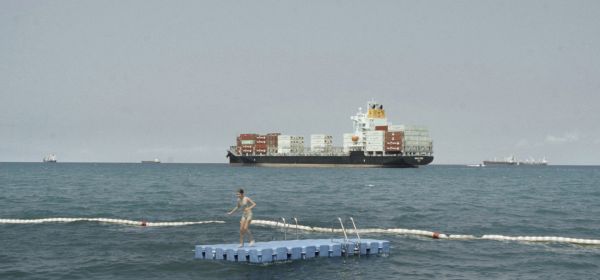
Seablindness
director: Tereza Smetanová
original title: Seablindness
country: Slovakia
year: 2025
running time: 29 min.
90% of everything we consume is shipped to us by boat. Seablindness explores the interstitial space of ports where land meets the sea and capital circulates. On a journey along the varied edges, we intercept a radio call from stranded seafarers. This documentary poem explores ecological anxiety. It is not, however, about those who feel it, but for them.
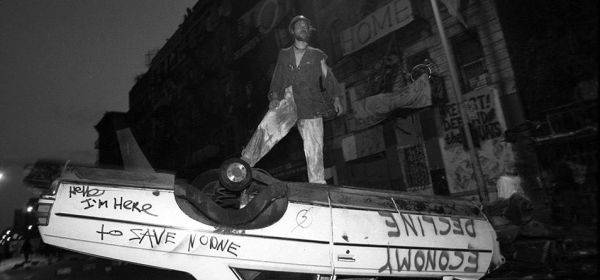
Survival Without Rent
director: Elana Meyers, Katie Heiserman
original title: Survival Without Rent
country: United States
year: 2025
running time: 21 min.
During the 1980s, there were hundreds of abandoned houses in New York that their owners were unable to maintain. They were taken over by squatters, who used their own hands to build homes, but also a utopian community, based on anti-capitalist principles. Archival footage and testimonies map their story, until their forced eviction in the 1990s. “Survival without rent: This is a book to help people take back homes that have been taken away from them by government and business.”
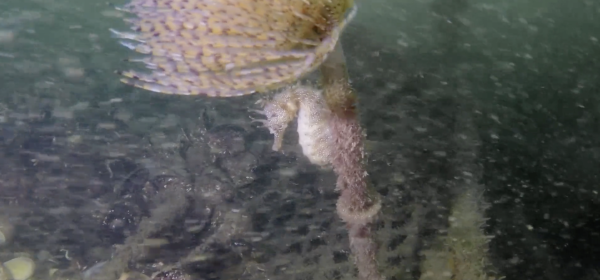
Sweet and Salty
director: Carmen Tofeni
original title: Agridoce
country: Portugal, Romania, Belgium, Hungary
year: 2025
running time: 16 min.
The life of a small coastal community is changing beyond recognition. At least that’s how it seems to an old fisherman, as he watches the dire consequences of climate change on his long-standing source of livelihood. For the filmmaker, the disappearance of the seahorse – nature’s litmus test for clean water – becomes a symbol of humanity’s destructive activity. “Documentary-making is like shifting lenses for me, shaping both my craft and my humanity.” — Carmen Tofeni
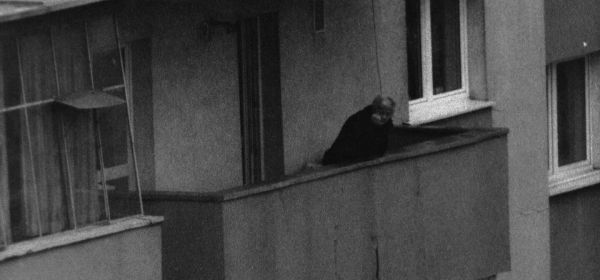
Talking Shadows
director: Lévana Schütz
original title: Umbrele vorbesc
country: Romania, Switzerland
year: 2025
running time: 15 min.
Through its secret service, the Securitate, the Romanian communist regime built a monstrous system of spying and mutual surveillance of its own citizens. This stylized documentary, imitating the optics of hidden cameras, reveals in three short interviews the terrifying dimensions that the need for pervasive control can take on. “Film is to her a medium with a particular quality that implies a fundamentally concrete relationship with time.” — Lévana Schütz’s website
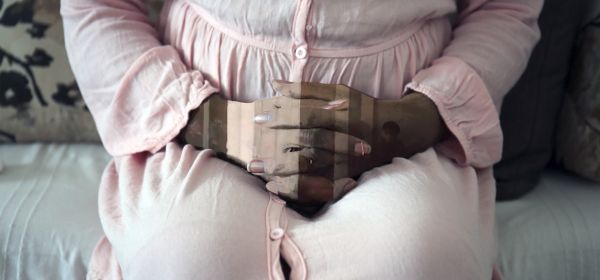
The Woman Who Walks
director: Francesco Clerici, Khaoula Matri
original title: La femme qui marche
country: Italy, United Kingdom, Tunisia
year: 2025
running time: 27 min.
Authentic testimonies from women in sub-Saharan Africa reveal the suffering and violence that accompany their hopeful journey to Tunisia and southern Europe. Their faces remain hidden from the camera; we see only fragments of their bodies and destinies. A chilling portrait of people who would rather risk death at sea than life in their own country. “I told myself: live or die.”
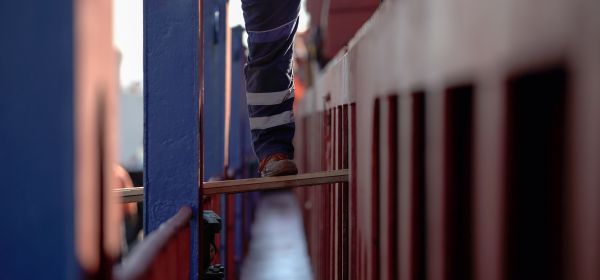
Tonnage
director: Yorgos Kyvernitis
original title: Tonnage
country: Greece
year: 2024
running time: 19 min.
When humans learned how to make fire, they began their journey toward inventions and industrial revolutions. The director of the film observes the constant presence of this primal spark in the work of Greek dockworkers, who unload tons of material from ships, material that is used to make objects we encounter in our everyday lives. “With a direct reference to the exact meaning of Tonnage, a word describing the weight in tons, especially of cargo or freight, the film traces the vexed semantics and archives of such a weight, historically and symbolically.” — Thessaloniki International Documentary Festival
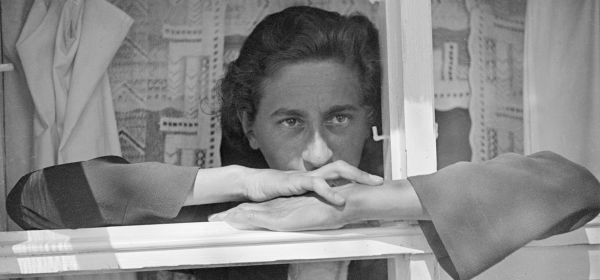
Weaving Anni Albers
director: Alessandro Del Vigna
original title: Weaving Anni Albers
country: Italy
year: 2025
running time: 9 min.
Anni Albers was a prominent member of the interwar Bauhaus art movement in Germany. After Hitler came to power, she left her native country and devoted herself to her work with unwavering passion in the USA. Weaving textile patterns was more than just an aesthetic activity for her; she saw the intertwining of threads as a tangible projection of the very fabric of reality. “Art is something that makes you breathe with a different kind of happiness.” — Dedar
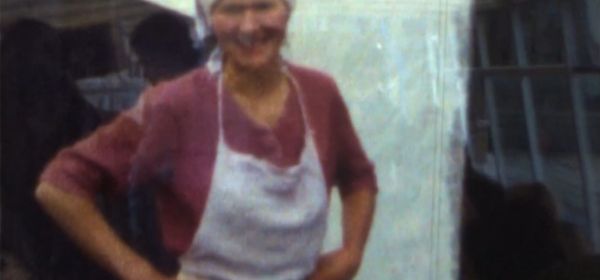
wedLOCK tradWIFE
director: Gabriele Neudecker
original title: wedLOCK tradWIFE
country: Austria
year: 2025
running time: 10 min.
A wife should obey her husband’s every word, and live only for him. This is how one could briefly summarize the attitude of some women who identify with the wedLOCK tradWIFE phenomenon. This film is based on their statements on social media, presented in a shocking concentration and painful collage, with period footage from the 1950s. “Tradwife refers to a woman who adheres to traditional gender roles, that is, caring for the household, rather than pursuing a career.” — Martin Šemelík, Department of Contemporary Lexicology and Lexicography, Institute of the Czech Language, Academy of Sciences










